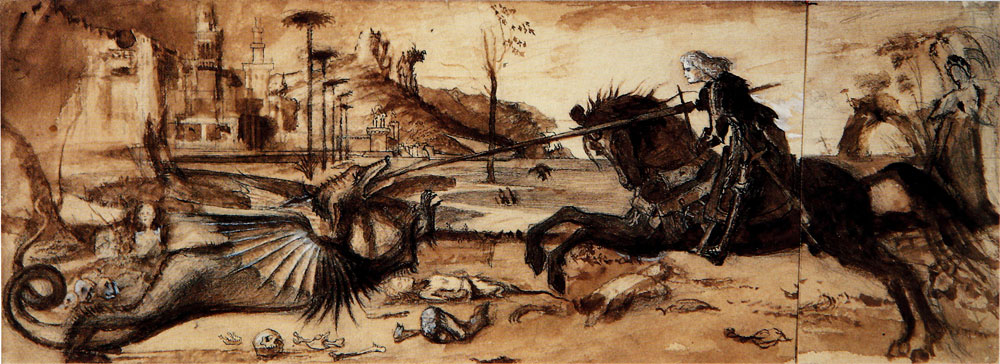By Jesse Ruderman, English Tutor CLE Denver
You exit an elevator of an apartment complex to hear the sound of a metal blade being sharpened. You approach Ned’s door, moving at a hesitant gait, the smell of cats itch your nostrils. There’s no secret knock, but Ned Zukoski opens his door, sweeps unkempt dark hair from falling into his brown eyes, and invites you to come in and play a game.
This game isn’t normal. It isn’t played on a board. There is no high-definition screen. Zero athletic ability is required. To play this game you must envision a character, a fictitious alter-ego, equipped with fantastical abilities that will help you survive attacks of the Dungeon Master.

Dungeons and Dragons (D&D), an imaginative role-playing game originated in 1974 by Gary Gygax, has survived the advent of video gaming. Multiple editions, guidebooks and even mobile applications exist to help you with game play, but the quintessential component of a successful D&D game is the dungeon master. Yes, you’ll want other participants, but the D.M. narrates the adventure, painting imaginary worlds rich with sensory detail wherein your survival is the ultimate goal. While kneeling in the mud of a brook’s edge, you cup water into your palms just as a Fiendish Viper charges… the fate of players comes down to Hit Points (think ability to endure) and the unlikely probabilities of a twenty-sided die.
Mapping adventures within campaigns, Ned revels in creating D&D conquests. If he recognizes an interest, he dives into conversations about Warlocks and shadow demons. He’s well versed in the particularities of the game’s mechanics. He asks questions about what color dragon your heritage stems from, should you play a dragon-born, and points to spell casts like Witchbolt (Sith Lightning, but magical) a crackling blue arc of energy.
But his true passion for D&D is the story-telling. “I like to see how the players traverse the worlds I’ve created and overcome the challenges I’ve placed before them. As Dungeon Master, Ned’s eyes fix on yours. He folds one leg tightly over the other, leans back, pauses mid-story, as if he relishes your anticipation. Afterall, he’s got an answer to conflict you must resolve. Would you leave the island’s fate in the hands of the Lich King? A thin mustache bends around his upper lip, a curl in the corner hints at delight. When he describes a player’s ability, Ned often uses hand-gestures. With one arm fully extended, Ned turns a palm up, bends his knuckles as if grasping something invisible, clenches his muscles, and releases fury.

That’s right. D&D has experienced a resurgence of popularity. These days, players of all genders and ages are eager to participate. Why this renewed interest? Maybe you’ve envisioned yourself as a hero/ heroine taking out a ferocious owlbear? Perhaps the idea of being in control of designing a character that must survive in a fantasy world is a nice escape from Hollywood’s scripts? Maybe gamers desire human interaction that is absent in the world of augmented reality? Ned points to fantasy in general coming back into style and the online streaming of D&D podcasts with tremendous followings. After all, when A-list actors like Vin Diesel promote D&D, stigmas dissipate and a new normal arises.








